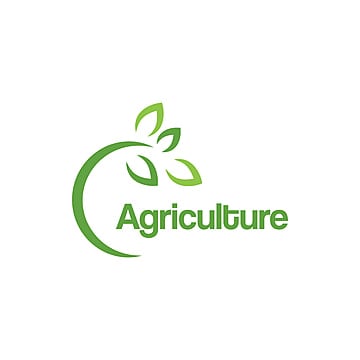Agriculture Career
A career in agriculture provides a wide range of intriguing options and growth routes. Initially, one may work as a farm manager or agricultural technician, acquiring hands-on experience in crop production and livestock management. Furthermore, as technology progresses, jobs in agricultural engineering and precision farming are becoming more prevalent. Furthermore, responsibilities in agribusiness, such as marketing and sales, are critical in connecting farmers with markets and consumers. Furthermore, research positions in agricultural science enable specialists to develop and improve farming processes.
As a result, sustainability has been a major priority, leading to opportunities in environmental management and sustainable agriculture. Furthermore, professions in agronomy and soil science provide chances to improve soil health and agricultural productivity. Moreover, Transitioning to further education and specialized training can lead to advancement and leadership opportunities. Finally, the agriculture sector offers a wide range of job opportunities for both personal and professional development.
Agriculture Course

వ్యవసాయం అనేది మన దేశానికి ఎంతో ముఖ్యమైన రంగం. ఈ రంగంలో కెరీర్ అభివృద్ధి అనేది అనేక అవకాశాలను కలిగిస్తుంది. వ్యవసాయ శాస్త్రంలో డిగ్రీ, పీజీ లేదా ఇతర పాఠ్యక్రమాల ద్వారా వ్యక్తి రైతుల పట్ల సాంకేతిక పరిజ్ఞానం, పద్ధతులు మరియు సస్యకృత్తులపై అవగాహన పెంచుకోవచ్చు. వ్యవసాయ నిపుణులు, సస్యశాస్త్రవేత్తలు, వ్యవసాయ సలహాదారులు, కృషి సంబంధిత సాంకేతిక నిపుణులు వంటి అనేక స్థానాల్లో వారు పని చేయవచ్చు. ఈ రంగంలో అవకాశాలు విస్తారంగా ఉన్నాయి, అది శాస్త్రీయ పరిశోధన, వ్యవసాయ పరిశ్రమలు, శిక్షణ, మరియు రైతులకు సాంకేతిక సహాయం అందించడం వంటి రంగాల్లో విస్తృతంగా ఉంటుంది. ప్రభుత్వ వ్యవసాయ సంస్థలు, స్వయంగా పనిచేసే వ్యవసాయ నిపుణులు, మరియు పర్యావరణ సంబంధిత పరిశోధనా సంస్థలు ఇలా అనేక చోట్ల పని చేసే అవకాశాలు ఉన్నాయి. పరిశోధన, మార్కెటింగ్, వ్యవసాయ నిబంధనలు మరియు ట్రైనింగ్ వంటి అంశాలలో నిపుణత పెంచుకోవడం వల్ల, ఈ రంగంలో కెరీర్ అవకాశాలు మరింత అభివృద్ధి చెందుతాయి.
Career Paths in Agriculture
Agricultural Scientist
- Role: Researches and develops new farming techniques, crop varieties, and pest control methods.
- Skills: Strong analytical skills, knowledge in biology and chemistry, research-oriented.
Agricultural Engineer
- Role: Designs and develops machinery and equipment for farming and agricultural processes.
- Skills: Engineering skills, problem-solving, mechanical aptitude.
Farm Manager
- Role: Oversees the operations of a farm, including crop production, livestock management, and financial planning.
- Skills: Management, organization, knowledge of farming practices.
Agronomist
- Role: Focuses on crop production and soil management to improve yield and sustainability.
- Skills: Knowledge of soil science, plant biology, and crop management.
Horticulturist
- Role: Specializes in the cultivation of fruits, vegetables, nuts, seeds, herbs, sprouts, mushrooms, algae, and non-food crops such as grass and ornamental plants.
- Skills: Expertise in plant growth, pest control, and garden design.
Agricultural Economist
- Role: Analyzes economic data and trends related to agriculture and provides advice on policies and business practices.
- Skills: Economics, statistical analysis, and knowledge of agricultural markets.
Veterinary Technician
- Role: Provides medical care for livestock and other animals on farms.
- Skills: Animal care, medical knowledge, and technical skills.
Soil Scientist
- Role: Studies soil composition and its impact on crop production and environmental health.
- Skills: Soil analysis, environmental science, and data interpretation.
Agricultural Extension Officer
- Role: Works with farmers to provide education on new techniques and best practices.
- Skills: Communication, teaching, and knowledge of agricultural innovations.
Sustainable Agriculture Specialist
- Role: Focuses on practices that promote environmental sustainability and resource conservation.
- Skills: Environmental science, sustainable practices, and project management.
Educational Requirements
- Bachelor’s Degree: Most agriculture careers require a relevant bachelor’s degree, such as in Agricultural Science, Horticulture, or Agronomy.
- Master’s/Ph.D.: For specialized roles or advanced research positions, a master’s or Ph.D. may be necessary.
- Certifications: Various certifications might be required or beneficial depending on the career path, such as Certified Crop Advisor (CCA) or certifications in sustainable agriculture.
Skills and Qualities
- Analytical Skills: To research and solve agricultural problems.
- Technical Skills: For operating machinery, analyzing soil, or implementing new technologies.
- Communication Skills: Important for educating others, working with teams, and presenting research.
- Problem-Solving Skills: Essential for addressing challenges in farming and production.
Career Outlook
Agriculture careers are looking increasingly viable as technology and environmental methods progress. Initially, the demand for food production fuels the need for skilled experts in this field. As a result, advances like precision farming and biotechnology are opening up new career prospects. Furthermore, the emphasis on environmental sustainability is creating opportunities for specialists in sustainable agriculture. Furthermore, as the world’s population grows, so does the demand for effective farming practices. Finally, these developments point to a dynamic and changing job landscape in agriculture.
Agriculture Overview
The production of food, fiber, and other goods depends on the cultivation of crops and the rearing of livestock, which are the two main activities of the agriculture sector. Additionally, To begin with, this field entails planting, growing, and harvesting. Furthermore, precision farming—which uses data to increase output and decrease waste—is one of the cutting-edge technologies that are progressively being incorporated into modern agriculture. As a result, sustainable techniques are highly valued in order to guarantee long-term resource management and environmental care. Moreover, agriculture contributes significantly to the economy by fostering job growth and rural development. The sector needs to adjust as the world’s population grows by taking on issues like food security and climate change.


